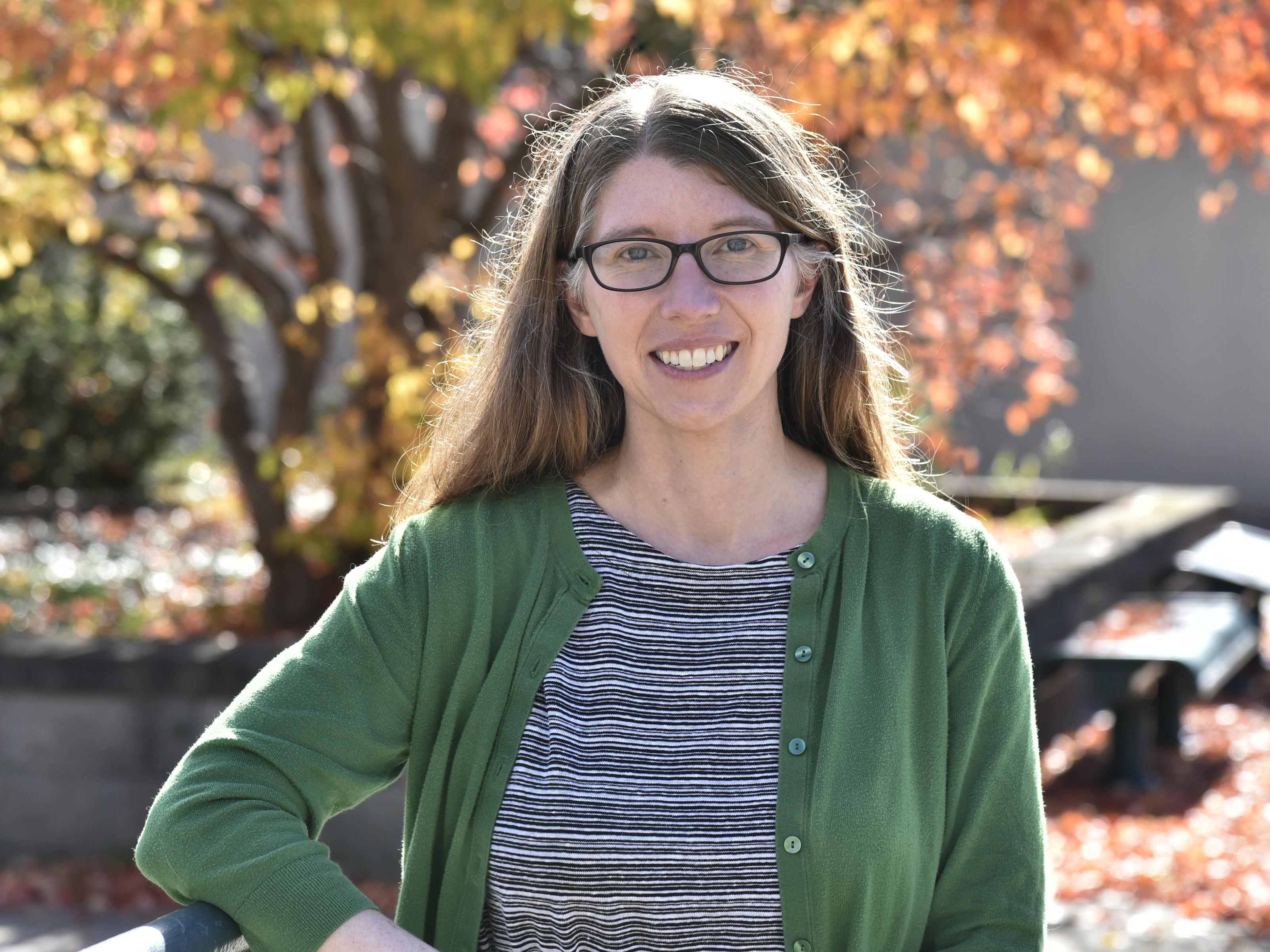Political science chair and associate professor Allison Rank recently earned a prestigious national fellowship to study and support practices and outcomes related to civic engagement and learning.
Rank was named to the American Democracy Project (ADP) Civic Fellows program, part of the American Association of State Colleges and Universities. She is one of only 17 faculty members nationwide taking part in this year’s cohort.
“I am interested in looking at how civic engagement fits with markers of bigger conversations about student success and high-impact practices,” said Rank, who initiated and spearheaded the college’s Vote Oswego ongoing non-partisan political participation project.
“Civic engagement should have embedded experiences for it to be successful and long-lasting,” Rank explained. “That includes research, internship opportunities and really great applied learning opportunities on your campus. I’m looking at how civic engagement opportunities can be structured in ways that can lead to high-impact practices.”
In other words, the success of student leaders in these efforts can provide a model for programs at Oswego or any campus.
“Students who complete fellowships/internships, whether it be through an on-campus or off-campus program, offer a discrete group who can be assessed to determine how significant participation in voter engagement program links to high-impact learning practices and broader student success issues,” Rank wrote in her application for the fellowship program.
Sustaining engagement
While the traditional goals of civic engagement programs are important – registration, voting and other engagement with the political process – the creation of a great program goes beyond participation numbers.
“There’s a rationale to think about a civic engagement office like you do a study-abroad office,” Rank said. “When somebody studies abroad, it’s about much more than taking classes – the experience and lessons transcend that and last a lifetime. What students get out of it is a life-changing, high-impact practice. And they in turn bring this to the campus community, in classrooms, in residence halls, in student organizations and elsewhere.”
Similarly, student involvement in running any civic engagement project goes beyond immediate results.
“What’s being offered to the overall campus is important, but what students get out of running a civic engagement program is always going to be more than what the students they reach get out of participating in this program,” Rank said.
As a member of the ADP Civic Fellows program, Rank gains access to contacts and collaboration opportunities to advance this and other civic engagement projects.
“This is a new concept,” Rank said. “It’s a space where folks involved in civic engagement are trying to build links. We know high-impact practices have an impact on civic engagement, we’re trying to get a foothold to broaden the research.”
Rank’s project is already under way, running through 2024. For this academic year, that involves data collection –- including inviting students to help gain experience in this work –- followed by data analysis next year.
Through the AASCU Civic Fellows program, Rank hopes to create findings and materials that will provide data to support campuses investing in these initiatives.
“This could include one-pagers that people can take to campus administrators to explain, providing practical application for ADP campuses,” Rank said.
In support of this project, Rank received a nearly $20,000 grant from NEO Philanthropy’s Students Learn Students Vote Fund to study student success and civic engagement.
And through the ADP Fellows program, Rank and others have the support and opportunity to develop, implement and share research that can support civic engagement on any campus.
“It’s trying to build the groundwork of a research network among those of us who are doing the work,” Rank said. “Ultimately, we hope to have the data to frame voter engagement work in the language of high impact practices and student success to better promote civic engagement work for campus leaders anywhere.”




